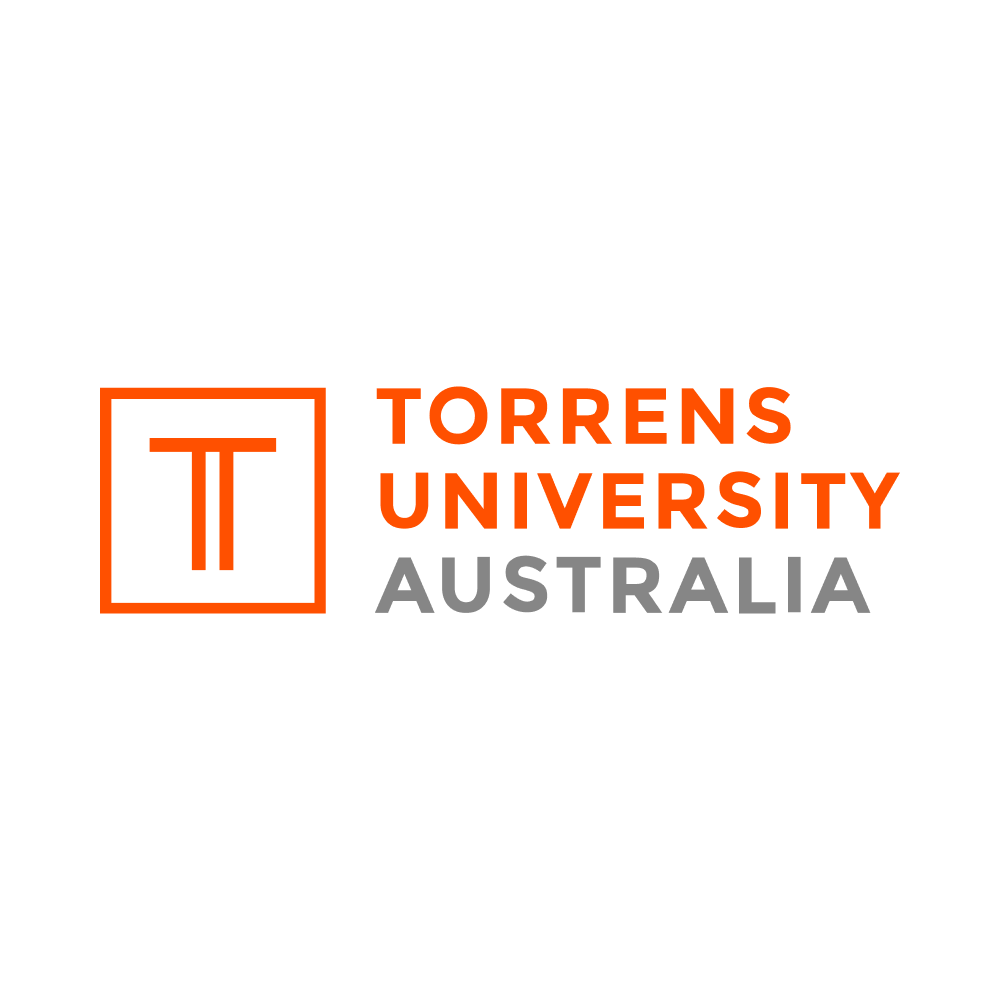
As we move through 2025, it’s clear that transformation is on the horizon for Australian businesses. With so much change in the air, it’s more important than ever for professionals to stay informed about emerging trends in the business world.
From technological advancements to shifts in consumer behaviour, trends can influence market dynamics, dictate the demand for certain skills and play a crucial role in ensuring businesses can remain resilient and profitable in the face of change. Staying informed about business trends is essential for professionals to navigate these transformations effectively, maintaining their competitiveness and success in a dynamic environment.
If you’re at a professional crossroads or just eager to seize new opportunities, pursuing an MBA can be a smart strategy to match pace with new trends and stand out professionally. Today, we explore the latest business trends and how studying an MBA can help you adapt to these changes, enhance your strategic thinking and position yourself as a leader in your field.
2025 business trends
This year promises a smorgasbord of emerging and forecasted trends that could redefine how businesses operate in Australia. From the integration of cutting-edge technologies to four-day working weeks and a renewed emphasis on sustainability, these trends capture the shifting focus and priorities of the fastest-growing industries in Australia and the wider business environment.
Jason Perelson, a partner at Synergy Group, says, “All of these trends have a multitude of lenses through which business professionals should assess and understand. This helps them align their practices and strategies for sustainable business operations that can adapt to changing conditions.”
Here, Mr Perelson helps us uncover some of the most impactful business trends shaping the industry right now.
1. Artificial intelligence (AI) and digital disruption
AI is a key driver for efficiency and innovation across various sectors, from finance to construction and healthcare. The widespread adoption of AI sets new benchmarks in customer service, project management, logistics, healthcare diagnostics and many other critical business areas.
The CSIRO estimates that digital technologies, including AI, could be worth $315 billion to the nation’s economy by 2028. Industries most reliant on AI include mining, agriculture, defence, energy and healthcare.
Mining giant Rio Tinto has deployed AI and automation technologies in its operations, including autonomous haul trucks and drilling systems, to improve safety and efficiency. The big banks are getting on board too, using AI for fraud detection, customer service chatbots and personalised banking experiences.
By embracing AI, companies can improve efficiency and unlock new opportunities for workforce development, ensuring they remain at the forefront of their respective industries. As the AI market grows, its role in redefining business models highlights the importance of using AI to augment, not replace, the workforce.
Acquiring AI-related skills can significantly boost your employment prospects in a competitive job market. There are numerous short courses available to help you upskill in this digital area. Many of them are conducted online, allowing you to study when it's convenient for you without compromising your professional commitments. These courses are designed to help you understand and examine the role of AI in today's business landscape.


With 31% of enterprises expected to add AI into their strategy over the next 12 months (Adobe), it’s never been more critical to upskill. Today’s neural networks and machine learning algorithms are more likely to drive an autonomous car, analyse property markets, power a chatbot or help with clinical diagnoses and suggest treatments. The real challenge facing AI isn’t potential applications; it’s getting companies to recognise them.
This industry-approved short course, developed with Amazon Web Services, explores AI's potential to disrupt your business. Master the AI basics, make agile decisions and get ahead of the curve.
- Develop an AI strategy for your business: Learn to identify AI opportunities, integrate AI solutions and create a tailored roadmap for organisational innovation and competitive advantage.
- Gain industry-validated skills: Master AI concepts, applications and ethical considerations with insights from top industry partners like AWS and earn an RMIT credential to showcase your expertise.
- Flexible, mentor-supported learning: Study 100% online with support from expert mentors and industry leaders, balancing your professional growth with work and life commitments.


AI is reshaping organisations at an unprecedented pace. From automating routine tasks to powering groundbreaking innovations, AI is driving efficiency, improving decision-making and creating new opportunities. By increasing your AI literacy, you can be part of the digital transformation. Whether you are in marketing, finance or even operations, AI skills will empower you to make data-driven decisions, increase productivity and even drive innovation.
Throughout this course, you will discover how AI operates and how it can be best leveraged - from understanding generative AI and its limitations to mastering prompt engineering. You will gain practical insights and strategies for harnessing AI’s potential effectively and ethically at work and develop a practical action plan for implementing AI within your role. This requires leveraging a range of strategies for selecting and implementing the right AI tools for your role to stay ahead in the AI-driven world.
- Delivered 100% online.
- Participate in live sessions facilitated by an industry expert.
- Receive a digital badge and 2.00 CEMD points.
2. Sustainability and ESG practices
Sustainability and ESG practices are increasingly vital for businesses to mitigate risks, comply with evolving regulations and meet consumer demands for ethical responsibility. Australian companies are at the forefront of this shift, with leaders like Woolworths Group and BHP investing in sustainable operations and transparent ESG reporting, while firms like Australian Ethical base their investment decisions on strict ESG criteria.
Not surprisingly, energy sector companies like Meridian Energy are channelling investments into renewable energy sources, like wind and solar, to reduce carbon footprints and support the transition to a lower-carbon economy.
This trend is reshaping the narrative of the modern business environment, encouraging innovation and opening new markets by aligning with global sustainability objectives. As businesses integrate these practices into their core strategies, they can enhance their market appeal, secure their long-term viability and contribute to the global sustainability agenda.
Many postgraduate business programs from Australian universities include sustainability in their course structures. These programs can equip students with the skills to examine ESG issues and develop sustainable strategies that can help their organisation grow and thrive in the long run.


The Master of Economics of Sustainability advances your career with high-level skills and knowledge in ecological economics, modern monetary theory and financial systems.
Learn to analyse economic and ecological issues, discuss economic reform proposals, evaluate consequences of economic policy changes and apply empirical research methods in varying contexts. This unique course is designed to meet the growing global demand for high-quality graduates in the field of economics of sustainable wellbeing. Graduation from this degree will provide you with expanded work opportunities as well as long-term career advancement in a world that is transitioning towards wellbeing budgets and zero net carbon emissions. The Master of Economics of Sustainability degree also provides a pathway to doctoral studies.


The Master of Business Administration Sustainable Leadership allows you to study a broader range of specialist elective units based on your career interests over 2 years full-time (or part-time equivalent).
You will have a deep understanding of genuine sustainable business practice. This course will guide you through how businesses can operate profitably and in a manner that supports society, the economy and the environment. In addition to the traditional core MBA business competencies, this course will provide the essential knowledge and skills required by the sustainable enterprises and businesses of the future, including developing practical sustainability and CSR strategy, designing and implementing sustainability initiatives, as well as sustainability disclosure and reporting. You can also undertake an applied professional business placement or select specialist electives that support your chosen career pathway.
3. Demographic changes and an ageing population
The demographic shift towards an older population in Australia is prompting businesses to innovate their product and service offerings. Industries from healthcare to finance and real estate are tailoring their strategies to meet the needs of this growing segment.
While companies like Bupa continually evolve their residential aged-care service offerings, tech-based providers like InteliCare offer smart home monitoring systems that use AI and IoT to enable older adults to live safely and independently while keeping their families informed about their wellbeing.
Businesses can create useful and valuable solutions that foster loyalty and drive growth by addressing these demographic changes. Better still, shifting to meet the needs of this trend allows businesses to tap into new consumer segments and contribute to a more inclusive and diverse business environment.
4. Evolving work cultures: Annual leave reform and remote work
The Australian workplace is undergoing significant transformation, driven by two major trends — the push for annual leave reform and the widespread adoption of remote work. The most recent data from the Australian Bureau of Statistics shows that 36 per cent of Australian workers regularly work from home. Although this is less than the approximately 40 per cent of workers in 2021, it’s still more than the pre-pandemic level.
The social trends towards enhancing work-life balance and employee wellbeing are driving the changes. Businesses are showing a commitment to enhancing work-life balance and employee wellbeing, aligning with global standards and modern workforce expectations.
Retail sector leaders like Woolworths are at the forefront of exploring annual leave reform, considering policies that offer a fifth week of leave. Meanwhile, the rapid shift to remote work, driven by the pandemic, has become a staple in redefining work environments. Companies like Atlassian and Telstra are leading by example, implementing flexible work arrangements and support systems to accommodate the dynamics of remote work, including wellbeing programs.
At the same time, companies like Versa have successfully shifted to a four-day workweek model, highlighting a trend towards balancing improved productivity and employee satisfaction. By embracing these workplace trends, Australian businesses can adapt to changing global standards and position themselves as attractive employers in a competitive landscape.
5. Renewed focus on cybersecurity
As cyber threats grow more complex, Australian companies are stepping up their cybersecurity efforts to safeguard sensitive information and preserve customer confidence. Businesses in various industries, including banking and technology, pour resources into sophisticated security solutions and train their staff to fend off these dangers.
Businesses in Australia spend more than $5 billion a year on cybersecurity and this figure continues to grow.
Leading the charge, financial giants like the Commonwealth Bank of Australia have implemented thorough cybersecurity strategies. This move underscores the sector’s dedication to protecting against online risks, ensuring the safety of customer data and the integrity of the digital economy.
In this era, it’s essential for every business to safeguard and defend their customers’ data.
You can find various postgraduate courses in Australia that focus on cybersecurity. Typically catered to IT and computer science graduates, these programs can help you design, execute and manage cybersecurity systems. You may cover topics such as software security, IT forensics and cryptography.


The Master of Cybersecurity is designed for IT and computer science graduates who are looking to move into a cybersecurity career, as well as IT and computer science graduates who are already working as cybersecurity professionals and who are looking to broaden their skill set or progress their career


Whether you wish to work in large businesses, government organisations or carve your own path, cybersecurity is a challenging specialist career that will see you highly rewarded. Develop your ability to design, implement, assess and manage cybersecurity systems to protect the data and communication networks that are crucial to our lives. At Monash, you’ll have access to the best minds in the field. But you won’t just be acquiring cutting-edge technical knowledge and expertise; you’ll also be developing key communication skills that focus on creating a positive impact wherever you go.
This course is accredited by the Australian Computer Society (ACS), which means you’ll automatically be eligible to become a member, opening doors to invaluable networking and professional development opportunities.
6. Geopolitical shifts and economic resilience
Navigating geopolitical shifts is crucial for Australian businesses to mitigate trade uncertainties and build economic resilience. The country’s reliance on international markets makes it essential for businesses to diversify their operations and strengthen supply chains. Investing in supply chain resilience allows businesses to not only withstand shocks but also to adapt and thrive amidst volatility.
Companies like the Australian Agricultural Company are expanding into new markets and enhancing supply chain resilience to counteract global tensions. This approach helps stabilise the economy, ensuring steady market access and price stability.
Firms like BHP have led the way in fortifying their supply chains, diversifying their source materials and implementing cutting-edge logistic solutions to ensure reliability and efficiency under any circumstances.
The global pandemic highlighted vulnerabilities and disruptions in pharmaceutical supply networks, which are still affecting consumers and businesses today. Healthcare companies are continuing to re-evaluate their sourcing strategies, moving towards local production and diversifying suppliers to mitigate risks. Similarly, major retailers are reimagining their supply networks to be more responsive and adaptable to changes in consumer demand and global market trends.
Adapting to geopolitical changes is a matter of ethical responsibility and a strategic approach to risk management, regulatory compliance and consumer satisfaction. By prioritising economic resilience, Australian businesses can safeguard against disruptions and support the nation’s overall economic stability and growth.
7. DEI (diversity, equity and inclusion)
The emphasis on DEI pushes Australian companies towards greater transparency and accountability in their practices. Nowadays, there’s a widespread expectation for companies to cultivate genuine diversity, equity and inclusion at every level of their operations.
Firms like Westpac lead by example, implementing comprehensive DEI programs and policies that enrich the work environment for employees and foster a culture where everyone can thrive.
DEI is not just a moral imperative; it’s also good for business. It’s a strategic asset that drives collaboration and innovation, attracts a wider net of talent, enhances customer satisfaction and can contribute to better overall performance.
Higher education institutions in Australia are also recognising this business trend by introducing courses that are relevant to DEI. For example, the University of New South Wales offers the Master of Human Resource Management (Diversity, Equity and Inclusion). In this online course, you can gain an understanding of the strategies and tools needed to cultivate a positive professional environment where employees feel supported to thrive.


The Master of Human Resource Management (Diversity, Equity and Inclusion) explores tools, strategies and frameworks to create thriving organisations where employees feel supported to grow. With a focus on wellbeing, sustainability, leadership development techniques and people-focused frameworks and practices, you will learn how to drive success in organisations where culture complements business strategy, allowing you to create genuine impact and guide future-focused transformation, no matter the industry.
Adapt to future business trends with an postgraduate business degree
As these trends continue to develop, the need to adapt and bring new ideas to the table becomes critical. Pursuing an advanced business degree can provide a comprehensive toolkit for assessing and adopting relevant trends for a successful outcome.
A postgraduate qualification in this space can provide knowledge in essential areas like digital innovation, technology management and entrepreneurship while fostering critical thinking and problem-solving skills.
It can also open doors to a rich network of professionals and experts, helping you to better grasp global business trends and practices. This blend of knowledge, skills and networking can prepare you to lead effectively, seize new opportunities and drive growth in an ever-evolving business environment.
These degrees don’t just provide the technical know-how to navigate these trends; they fosters a mindset geared towards continuous learning and evolution. By tapping into diverse perspectives and innovative approaches, you’ll be better equipped to adapt to future business trends and transform challenges into opportunities, gearing yourself and your organisation towards success.
Lead the way from today
The landscape of Australian business is changing, and emerging trends present both obstacles and possibilities in business. Adapting to new trends is key to succeeding in the business world.
Postgraduate studies can equip you with the knowledge, skills and mindset to turn challenges into opportunities and thrive in this dynamic, new-world environment. Ready to lead, innovate and succeed? Explore postgraduate business programs in Australia and enrol in a course that can set you up for success.



















